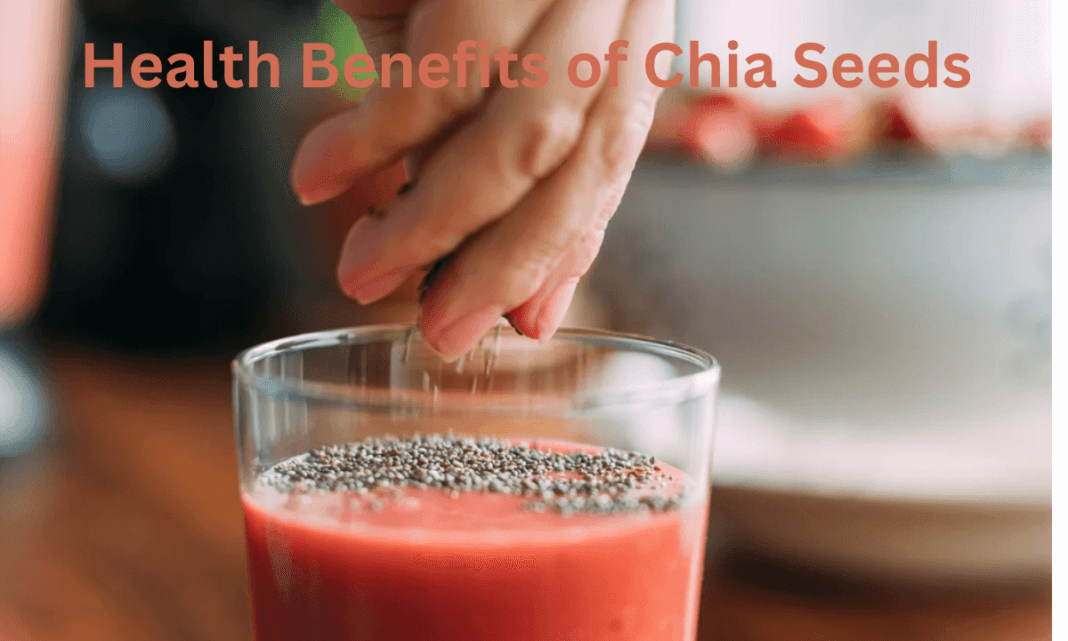Health Benefits of Chia Seeds: A Promising Tool for the Treatment of Metabolic Diseases
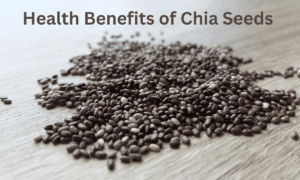
There are a lot of health benefits of chia seeds because of its various nutrients, or it is also called super food. The high fibre content of chia seeds has many health benefits, including lowering cholesterol, promoting good digestive health, and protecting the heart. Fibre aids weight loss and lowers the risk of diabetes and heart disease since it takes longer to digest and increases satiety levels.
Health Benefits of Chia Seeds
The chia seeds contain omega-3 fatty acids, fibre, antioxidants, and minerals. All sorts of bodily processes and functions rely on these nutrients.
Chia seeds are nutrient-dense despite their diminutive size. For ages, they have been extolled as a panacea for ill health; they were integral to the diets of the Maya and Aztec peoples.
The heart, bones, and blood sugar levels can all benefit from the nutrients included in chia seeds.
Chia seeds are also incredibly adaptable and may complement various dishes. I enjoy their gel-like quality, especially when combined with liquid to make chia pudding.
1, Could Reduce Factors That Increase the Risk of Heart Disease


- The heart-protective minerals, fibre, and good fats in chia seeds are well-documented. Researchers have shown that chia seeds can help lower “bad” cholesterol levels and blood pressure, two risk factors for cardiovascular disease.
- Chia seeds reduce cholesterol due to their high soluble fibre content. Fibre increases cholesterol excretion rate and decreases absorption in the intestines.
- In 2021, researchers looked at 10 studies and concluded that eating chia seeds helped reduce total cholesterol, bad cholesterol (LDL), and triglyceride levels while raising levels of good cholesterol (HDL), which protects the heart.
- Cardiovascular disease is a major cause of heart attacks, strokes, and related illnesses. Chia seeds can help lower excessive blood pressure. They contain several nutrients that may help regulate blood pressure, including magnesium, fibre, long-chain polyunsaturated fats, and protein.
- Researchers in 2021 observed that compared to a control group, individuals with type 2 diabetes and hypertension whose daily chia seed intake was 40 g had significantly lower systolic blood pressure readings after 12 weeks of the trial.
2, A Great Way to Get Your Fiber
“Chia seeds are high in fibre.”Compared to other common foods like cereals, nuts, dried fruits, and flaxseeds, chia seeds have more fibre.
- The 9.75 grams of fibre in only 1 ounce of chia seeds is enough to meet about 35% of your recommended daily allowance.
- A diet high in fibre is also crucial for digestive system health, making it possible to have consistent and pleasant bowel movements and grow good bacteria in the gut.
- The bulk-increasing properties of chia fibre make it useful for treating and preventing constipation.
- Chia seeds are rich in fibre, encouraging the growth of bacteria that create SCFAs, which are byproducts of their metabolism. The large intestine is home to bacteria that digest fibre, releasing short-chain fatty acids (SCFAs).
- The text refers to three specific organic acids: propionic acid, butyric acid, and acetic acid. In addition to fueling colonocytes, which line the colon, SCFAs aid in inflammation regulation and gut health maintenance.
- In addition to reducing inflammation in the intestines, the antioxidant and anti-inflammatory substances found in chia seeds include polyphenols and omega-3 fatty acids.
- In addition, they have a lot of zinc, selenium, and calcium, which are often lacking in those suffering from gastrointestinal diseases like inflammatory bowel disease.
3, Whole Protein
- Harvard Health points out that chia seeds provide all nine amino acids the body needs but cannot produce independently.
- Your body requires certain amino acids to generate energy and maintain proper immune system function.
- Dairy products, eggs, fish, meat, and chicken are all examples of animal-based complete proteins; plant-based alternatives include quinoa, buckwheat, and edamame.
- You can add protein to nearly any recipe with chia seeds because they include 5 grams of protein per serving.
4, Protective Compounds and Plant-Based
Antioxidants and polyphenols, including caffeic acid, myricetin, quercetin, rosmarinic acid, and others, are abundant in chia seeds, which is another surprising health advantage of these seeds.
Plant compounds having antioxidant capabilities, such as polyphenols, may aid in health maintenance and disease prevention by shielding cells from free radicals, which can cause cancer, heart disease, and other illnesses.
5, Triunflavorite Fatty Acids
Chia seeds’ omega-3 fatty acids lower blood pressure and lipid levels. Reducing the risk of cardiovascular disease (Gans). Lupus, rheumatoid arthritis, and eczema may be easier to manage with omega-3 fatty acids. Some research suggests they may even help prevent diseases like cancer.
6, Very Few Calories
Any snack or meal can benefit from the low-calorie crunch that chia seeds provide. Just 28 grams (or two tablespoons) of chia seeds, equivalent to one ounce, contain 138 calories.
Thanks to their high fibre content, incorporating chia seeds into a low-calorie snack or meal will make you feel full for longer without sacrificing your calorie intake.
7, This Can Lower Blood Sugar Levels and Cholesterol.
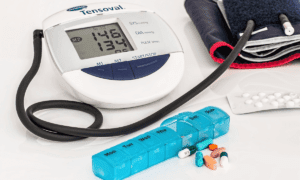

According to Harvard Health, most of the fibre in chia seeds is soluble fibre, while the remaining portion is mucilage, which gives wet chia seeds their gluey consistency.
These fibres can reduce bad cholesterol (LDL) and digestion speed, which can help with satiety and avoid dangerous blood sugar rises after meals. Eating bread with chia seeds reduced post-meal spikes in blood sugar in healthy adults, according to research conducted in 2013.
8, It Might Promote Healthy Bones.
Chia seeds contain magnesium, calcium, and phosphorus. All three minerals have long been associated with optimal bone health. Numerous observational studies have shown that obtaining adequate nutrients is crucial for preserving healthy bone mineral density, a measure of bone strength.
8, Chia Seed Pudding With Almond Milk and Potentially Prevents Colorectal Cancer
According to Jackie Newgent, R.D.N., C.D.N., author of The Plant-Based Diabetes Cookbook and a chef and nutritionist, chia seed components may have a preventive function in chronic diseases such as cardiovascular disease, diabetes, and cancer.
You may know that chia seeds are high in fibre, which is good for your digestive system. According to the Mayo Clinic, there is evidence that a high-fibre diet can reduce the risk of colorectal cancer.
Vitamin B12 Deficiency or Folate Deficiency Anemia
10, Are Chia Seeds Effective in Reducing Abdominal Fat?
Contrary to common assumption, Gans says no single food or substance targets belly fat in particular. If an individual is constipated and experiencing bloating, chia seeds could help with bowel regularity and reduce bloating.
According to Prest, chia seeds can help you lose weight—including belly fat—because their high fibre content makes you feel full for longer, so you eat less overall.
“What is the daily recommended intake of chia seeds?”
According to Newgent, the average adult can benefit from eating about 2 tablespoons of chia seeds a day, spread out over meals and snacks.
Could Potentially Assist in Fostering Maintainable Blutaurol Levels
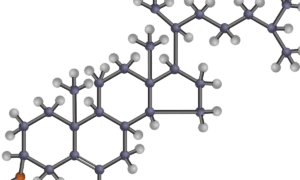

Chia seeds are rich in magnesium, fibre, and protein, all proven to help maintain normal blood sugar levels.
Research has shown that chia seed consumption has been associated with enhanced insulin sensitivity and better glycemic management in healthy and hyperglycemic individuals.
A 2018 meta-analysis and systematic review of 12 trials examining the benefits of chia seed consumption in diabetics and non-diabetics found that chia seeds helped lower insulin and blood sugar levels when taken in large quantities.
Adding chia seeds to high-carb meals may help blunt post-meal blood sugar levels, according to a 2017 study of 15 healthy adults.
The participants drank 50 grams of sugar solution with 25 grams of ground chia seeds, and their blood sugar levels were 39% lower than those of the sugar solution alone. It should be noted that this study was extremely tiny; therefore, its results should be seen as less conclusive.
In addition to lowering blood pressure, another complication of type 2 diabetes, chia seeds can help lower overall health risks.
42 individuals with type 2 diabetes showed significant reductions in systolic blood pressure in the 2021 trial. The participants were treated with 40 grams of chia seeds daily for 12 weeks.
Additionally, chia seed eating may protect high-risk individuals from developing diabetes, according to research. In a study conducted in 2022, 32 patients with fatty liver disease (NAFLD) were observed to have improved glucose metabolism after eight weeks of taking a diet supplement containing 25 grams (almost 2 tablespoons) of ground chia.
This improvement was attributed to the enhanced function of beta-cells, which are pancreatic cells responsible for producing and releasing insulin, the hormone that controls blood sugar levels. The study’s authors concluded that chia seeds may be useful in preventing diabetes in this group.10
Encourages Contentment
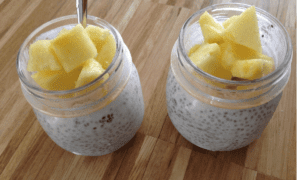

Consuming foods high in fibre and protein, such as chia seeds, is a great strategy for promoting fullness and healthy weight loss.
Both protein and fibre aid digestion, reducing the likelihood of blood sugar surges after meals and making you feel full for longer. To aid with weight loss, it may be helpful to eat filling foods like chia seeds, which may reduce hunger and calorie intake.
On days when they ate yoghurt with 7 or 14 grams of chia seeds instead of plain yoghurt, 24 participants reported much less hunger and more fullness than when they ate plain yoghurt without chia seeds. In addition, compared to chia-free yoghurt, participants who ate yoghurt with added chia seeds cut back on their calorie consumption.
According to these results, incorporating chia seeds into a balanced diet may aid weight loss.
Details on the Chia Seed’s Nutrient Content
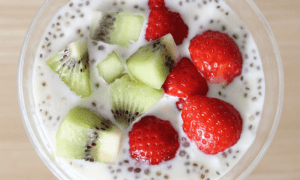

Despite their diminutive stature, chia seeds pack a nutritious punch. A serving of chia seeds, which is one ounce (28 grams), contains the following nutrients:
- Nutritional value: 138
- Total protein content: 4.86 g
- Metabolic rate: 8.7 g
- Contains 11.9 grams of carbohydrates.
- Fibre content: 9.75 grams
- One-fourteenth of the recommended daily allowance (or 179 milligrams) of calcium
- The iron content is 2.19 mg, which accounts for 12% of the daily value.
- About 23% of the daily value (95 mg) of magnesium
- There is.771 mg of manganese, equivalent to 34% of the DCV.
- The phosphorus content is 244 milligrams, which accounts for 20% of the daily value.
- Selenium: 15.6 mcg, which is equal to 28% of the daily value
- A 12% daily value (or 1.3 mg) of zinc
- Among the many abundant minerals in chia seeds are selenium, magnesium, and manganese.
- Magnesium is essential for many vital bodily processes, including D.N.A. synthesis, muscular contractions, nerve impulse conduction, glucose homeostasis, and arterial blood pressure management and maintenance.
- Many people do not consume enough magnesium, which can lead to low magnesium levels and multiple health problems, including stroke, hypertension, and depression.
- Iron is involved in cellular respiration and energy metabolism, manganese in cellular signal transduction and immune system modulation, and selenium in thyroid hormone synthesis.
- Chia seeds are packed with nutrients, including fibre, plant-based protein, and healthy fats.
Concerns About Consuming Chia Seeds
When done so in moderation, the consumption of chia seeds does not pose any health risks.
- However, due to their high fibre content, gastrointestinal issues, including gas, diarrhoea, and bloating, are possible side effects of chia seeds.
- If you’re currently on a low-fiber diet, gradually increase your consumption of high-fiber foods like chia seeds and water.
- There is also the possibility that chia seeds when mixed with liquids, could cause choking, which could be a problem for those who already have trouble swallowing.
- If you have trouble swallowing, you should be aware that chia seeds can expand in liquids and become thick and sticky, increasing the risk of impaction in the oesophagus.
Prepare This Mouth-Watering Garlic Shrimp Recipe
Methods for Eating Chia Seeds
Incredibly adaptable and packed with nutrients, chia seeds are a superfood. A few dietary additions that include chia seeds are these:
- Before thickening the mixture, mix the chia seeds with milk or nut milk to form chia pudding.
- Mix in chia seeds to boost the protein, fibre, and mineral value of yoghurt, oatmeal, and cereal.
- Breads, muffins, and other baked items benefit from chia flour.
- Sprinkle with chia seeds to add a little crunch to salads and grain bowls.
- Incorporate chia seeds into trail mix, energy balls, and homemade granola.
- Incorporate chia seeds into cooked fruit for a sugar-free chia seed jam.
- Mix 4 tbsp chia seeds and 1 cup milk in a mason jar for yummy chia pudding. After a few minutes, shake the jar to combine the ingredients.
- After approximately an hour, let the mixture set. For sweetness, try honey or maple syrup; sprinkle some sliced almonds, fresh fruit, or nut butter on top of your chia pudding for added nutrition.
- According to Prest, chia seeds are incredibly adaptable because they lack flavour, allowing them to be mixed with various dishes. Newgent suggests using chia seeds as a nutritious drink additive for a simple way to consume them.
- “Just add a teaspoon or two to your next smoothie or even mix some into a fruity cocktail! It’s that easy!”
- For a thicker consistency and an extra health boost, try making chia seed pudding. Prest also suggests adding it to overnight oats, jams, and coleslaw. If you’re into baking, you should know that chia seeds complement bread and other baked items.
If you’re not a recipe follower, add chia seeds to your favourite salad dressing, cereal, yoghurt, oatmeal, or rice dish for a crunchy twist. Chia seeds can be used in several aspects of your daily routine.
A Concise Overview
Among the many health benefits of the Salvia hispanica L. plant, chia seeds stand out. Although chia seeds are small, they pack a nutritional punch, including plant-based protein, fibre, and magnesium.
Chia seeds may have multiple health benefits. These include promoting digestive health and lowering risk factors for cardiovascular disease.
Chia seeds may be a satisfying and healthy addition to yoghurt and porridge, or you can whip up a quick chia pudding on hand for any meal.
Thank you for taking the time to read my story. If you enjoyed it, please consider following me on Medium and LinkedIn and subscribing to my website newsletter for more stories in various categories. Have a great day!


